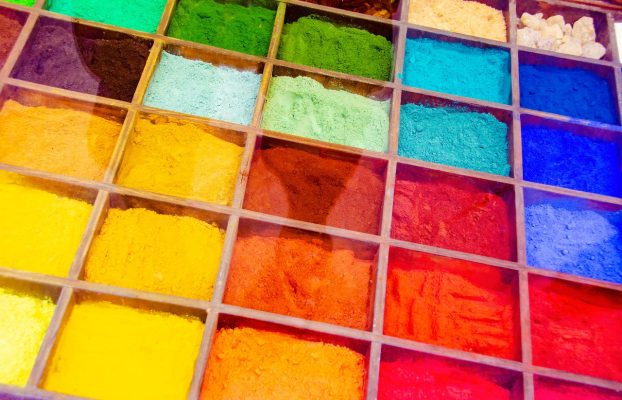Pigments for Paints
Pigments are fundamental ingredients in paint manufacturing, providing color, opacity, and resistance to coatings. Their wide range of colors and physical properties makes them a versatile choice for applications ranging from architectural paint to industrial and artistic coatings. Pigments play a crucial role in creating visually appealing and durable coatings.
Pigments are finely divided solid particles that impart color and opacity to paints. These particles can be of mineral, organic, or synthetic origin and are uniformly dispersed in the paint matrix.
Color and Opacity: Pigments provide a wide range of colors and allow adjusting the coating’s opacity.
Light Resistance: They are resistant to fading caused by exposure to sunlight and the elements.
Durability: Enhance resistance to wear, abrasion, and physical damage on the painted surface.
Chemical Stability: They are stable under various chemical conditions, prolonging the paint’s lifespan.
Brightness and Texture: Pigments can add gloss and texture to the surface, creating decorative effects.
Architectural Paint: Used to add color and protection to walls, ceilings, and exterior surfaces.
Automotive Paint: Provide attractive and durable colors for vehicles.
Industrial Coatings: Employed in industrial applications to protect metal structures and machinery.
Artistic Paint: Artists use high-quality pigments to create artworks.
Furniture Painting: Add color and beauty to wooden furniture and similar surfaces.
Variety of Colors: Allow a wide selection of colors and shades.
Protection and Durability: Enhance resistance to fading and damage.
Customization: Pigments enable the creation of unique colors and decorative effects.
Aesthetic Quality: Contribute to the visual appearance of the paint.
Versatility: Suitable for a variety of applications and types of paints.
Related News Posts Trends
On our blog you will find articles about our products and industries


